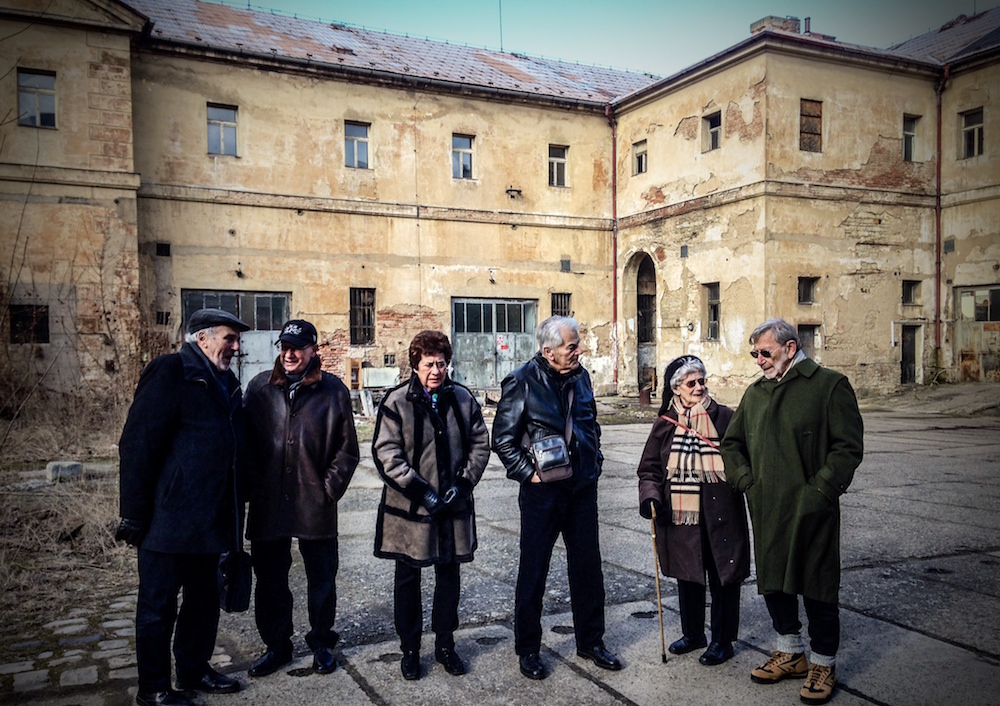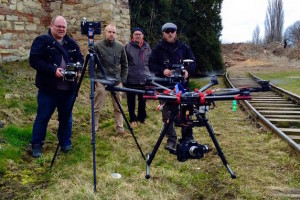Arpa Film Festival 2015 interviews with film directors
Documentary film co-directors and co-producers, Jonatan Jerichow and Carl Otto Dethlefsen knew that Goodbye Theresienstadt [http://arpafilmfestival.com/documentary-goodbye-theresienstadt-2015-arpa-film-festival-selection/] was a story that had to be told. The 18th Annual Arpa International Film Festival agreed and selected the documentary. The film will screen at the Egyptian Theatre on November 14 at 7:15 p.m.
Goodbye Theresienstadt is the story of six Danish Jews, who were children during the war and were sent to the concentration camp. The six individual stories are intertwined, with each survivor recounting their family’s failed escape and journey by ship and cattle car to Theresienstadt. Now in their seventies and eighties, the six travel together back to the concentration camp to tell of the horrific conditions, and of how they were rescued in the final weeks of the war. It is a poignant, dramatic story about survival amidst hopelessness, told firsthand by survivors from their childhood perspective.
Sharon Swainson, Arpa Film Festival writer, interviewed the enthusiastic duo, Jerichow and Dethlefsen. Their responses are below.
Why did you choose to make your film?
We made the film because the story deserved to be told. In 2013, we produced and directed the documentary October 43 about the heroic rescue of the majority of the Danish Jews during WW2. However, nearly 500 Danish jews were caught by the German Nazi occupying forces and were deported in cattle wagons to the Theresienstadt concentration camp. Most of the Danish Jews survived the imprisonment and were rescued before the war ended. Goodbye Theresienstadt is the story about how it happened — told by the survivors at the place where history took place.
Name a moment during shooting that made you proud.
There were many moments that made us proud. We can point out three particular moments in the film. One, was a very emotional moment when one of the survivors wanted to show us the memorial site commemorating the many thousands who did not survive the imprisonment. Two, involved a bit of humor, when another survivor told us, that he at one point may have been smoking Adolf Eichmanns cigarettes. Three, was a very special moment at the end of the film when the survivors revealed that this journey with the film crew would be their last visit to the camp. Finally they were able to leave behind the place where they endured malnutrition, disease, and extreme fear. Inspired by this moment, it was so obvious to us that the name of our film should be, Goodbye Theresienstadt.
 Was there a moment that became a creative breakthrough while making your film?
Was there a moment that became a creative breakthrough while making your film?
Yes. First, we got the idea of creating the film. Then we began the process of finding Danish holocaust survivors from the Theresienstadt concentration camp to share their stories with us and to return to the camp. It was definitely a creative breakthrough, when we knew who would be in the film. Especially that we actually succeeded in finding survivors 70 years after the war ended, now in their late 80s or 90s, and were remembering the liberation from the camp as if it had taken place yesterday.
During the creative process, was there a moment when you let go of certainties and just ran with it, allowing creativity to do its thing?
From the beginning of the project, we knew that it would be difficult to film in the Theresienstadt Concentration Camp. But to be honest, the brave Danish holocaust survivors made it easier for us. They were strong and they were very open minded when they shared their most personal memories from their imprisonment in the camp. Many times, we would just let the camera roll, while they were telling us there stories. 
Since an artist is truly never finished, is there anything that you would like to do differently or add to your film?
You can always use more time on the different locations and in the editing. But all in all, we are deeply grateful for making this film and for the result. It has never been made before and will never be made again. There only a few witnesses left to share their memories.
What does it mean to you to have your film selected by the Arpa International Film Festival?
It means a lot. It means that this true Scandinavian story will be seen by an international audience. For us as filmmakers, it means a whole lot to see Goodbye Theresienstadt being screened in Hollywood at the Arpa International Film Festival. It doesn’t get any better.
 Written by Sharon Swainson
Written by Sharon Swainson
Communications & Content Development
2015 Arpa International Film Festival
